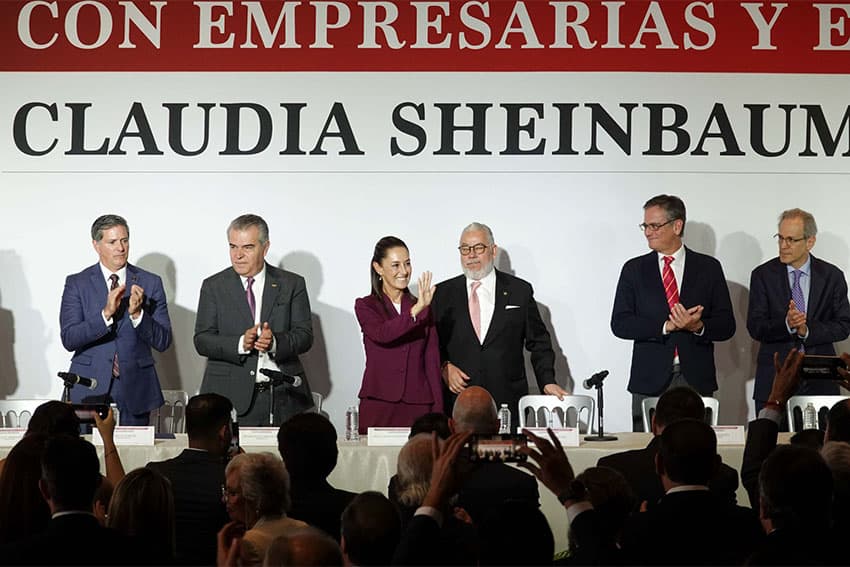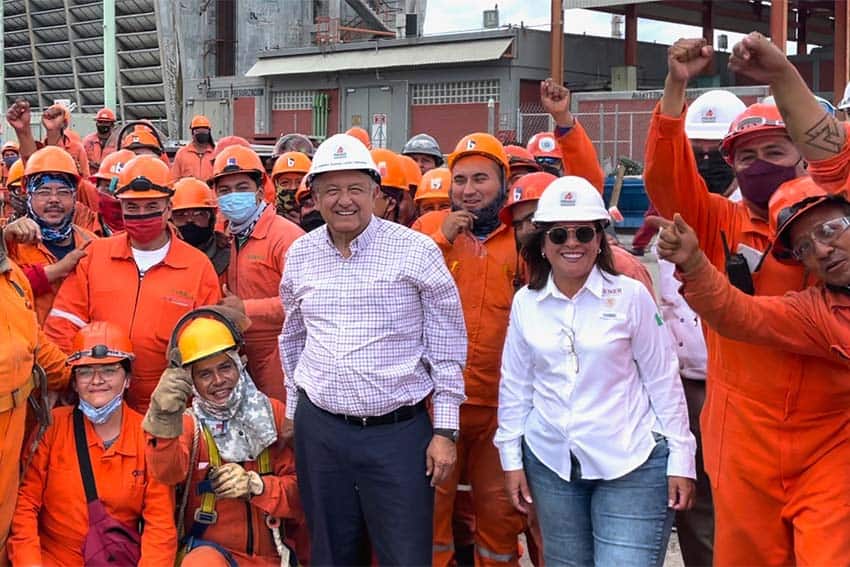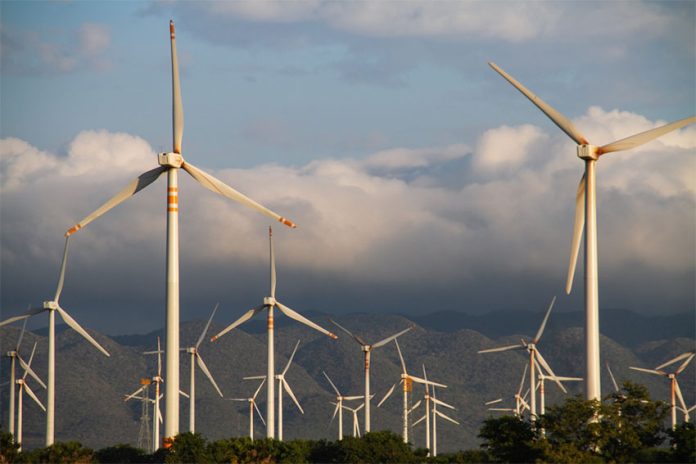Leading presidential aspirant Claudia Sheinbaum pledged Monday to invest US $13.57 billion in a renewables-focused energy plan if she wins the June 2 election.
“We’re going to accelerate the energy transition,” the Morena party candidate said at an event with business leaders in Mexico City, explaining that a government she leads would invest in solar, wind, hydro and geothermal projects during its six-year term.

Sheinbaum intends to ramp up the generation of wind and solar energy, undertake new projects at five hydroelectric plants, add around 3,850 kilometers of transmission lines and support families and businesses in installing solar panels on their homes and commercial establishments.
The plan she outlined represents a significant shift away from the current government’s fossil fuel-focused strategy, but Sheinbaum also committed to moving ahead with state-owned gas-burning power plant projects that are already under construction or have been planned.
Energy projects already in the pipeline, including solar ones, are expected to add about 3.3 gigawatts to Mexico’s national grid this year, Bloomberg reported.
Sheinbaum, a 61-year-old physicist, environmental scientist and former Mexico City mayor, said that the new projects to be undertaken during a government she leads would add 13.66 gigawatts of energy to the national grid by 2030, the year her six-year term will end if she succeeds in becoming Mexico’s first female president.
Bloomberg reported that one gigawatt can power approximately 750,000 homes in the United States.
Sheinbaum, who has a commanding lead in the polls over opposition bloc candidate Xóchitl Gálvez and minor party contender Jorge Álvarez, told leaders of organizations including the Business Coordinating Council and the Mexican Employers Federation that her team is “working on this energy plan not just with an eye on 2030, but also through 2050 to align with international commitments on climate change.”

In an interview with the El Financiero newspaper last week, the Morena candidate cited her commitment to renewable energy as a key difference between her and current President Andrés Manuel López Obrador, her political mentor.
Sheinbaum has pledged to continue the so-called “transformation” of Mexico initiated by López Obrador and is campaigning heavily on her closeness and loyalty to the president, best known as AMLO. She intends to maintain the current government’s popular welfare and employment programs and has expressed support for the constitutional reforms AMLO sent to Congress in February.
She has also pledged to continue support for the debt-ridden state oil company Pemex, which has received significant tax relief and cash injections from the current government. López Obrador has also invested heavily in increasing Pemex’s capacity to produce fuel, including by building a new refinery on the Tabasco coast and purchasing Shell’s share in a refinery that Shell jointly owned with Pemex in Texas.
In late 2021, during the United Nations Climate Change Conference in Glasgow, Scotland, Mexico was awarded second place in the Climate Action Network’s “Fossil of the Day” contest “for pumping more, not less, money into the fossil fuel industry, building oil refineries, and delaying policies aimed at carbon emissions reductions.”
Sheinbaum appears determined to make Mexico a more responsible global citizen in the area of climate change mitigation, but if she wins on June 2, she will face difficult decisions on government spending: she will inherit “the largest budget deficit in Mexico since the 1980s,” Bloomberg reported.
The news agency said that the deficit “may complicate plans to speed up Mexico’s clean-energy transition.”
Nevertheless, the candidate maintained an upbeat tone on Monday.
“We have the possibility and potential to develop Mexico in a way that generates investment with well-being,” Sheinbaum said.
“At the same time, that development does not have to negatively impact the environment,” she added.
